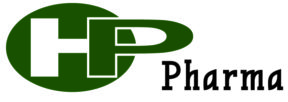Hager Bio-Molecular Medical Center- Cancer treatment protocols are:
- Molecular Targeted therapy
- Immunotherapy
- Hormone therapy
- HDVT High Dosage Vitamin Therapy
- Detoxification or Cleansing and PH boosting or Alkalizing the body
What is Molecular Targeted therapy?
Targeted cancer therapies are drugs or other substances that block the growth and spread of cancer by interfering with specific molecules (“molecular targets”) that are involved in the growth, progression, and spread of cancer. Targeted cancer therapies are sometimes called “molecularly targeted drugs,” “molecularly targeted therapies,” “precision medicines,” or similar names. Targeted therapies differ from standard chemotherapy in several ways:
Targeted therapies act on specific molecular targets that are associated with cancer, whereas most standard chemo-therapies act on all rapidly dividing normal and cancerous cells.
Targeted therapies are deliberately chosen or designed to interact with their target, whereas many standard chemo-therapies were identified because they kill cells.
Targeted therapies are often cytostatic (that is, they block tumor cell proliferation), whereas standard chemotherapy agents are cytotoxic (that is, they kill tumor cells).
Targeted therapies are currently the focus of much anticancer drug development. They are a cornerstone of precision medicine, a form of medicine that uses information about a person’s genes and proteins to prevent, diagnose, and treat disease.
Many targeted cancer therapies have been approved by the Food and Drug Administration (FDA) to treat specific types of cancer. Others are being studied in clinical trials (research studies with people), and many more are in pre-clinical testing (research studies).
Immunotherapies trigger the immune system to destroy cancer cells. Some immunotherapies are monoclonal antibodies that recognize specific molecules on the surface of cancer cells. Binding of the monoclonal antibody to the target molecule results in the immune destruction of cells that express that target molecule. Other monoclonal antibodies bind to certain immune cells to help these cells better kill cancer cells.
Hormone therapy is a cancer treatment that slows or stops the growth of cancer that uses hormones to grow. Hormone therapy is also called hormonal therapy, hormone treatment, or endocrine therapy.
Hormone therapy is used to treat prostate and breast cancers that use hormones to grow. Hormone therapy is most often used along with other cancer treatments. The types of treatment that you need depend on the type of cancer, if it has spread and how far, if it uses hormones to grow, and if you have other health problems.
What is HDVT (High Dosage Vitamin Therapy)
We use high dosage of Ascorbic acid, 7.500mg IV and 25.000mg IV and vitamin D3 300,000 IU and calcium gluconate IV, in addition to other amino acids.
Vitamin C (also called L-ascorbic acid or ascorbate) is a nutrient that humans must get from food or dietary supplements since it cannot be made in the body. Vitamin C is an antioxidant and helps prevent oxidative stress. It also works with enzymes to play a key role in making collagen.
- When there is enough amount of ascorbic acid in our body, our body able to remove water soluble toxins from our body and strengthen our immunity.
- When there is enough amount of ascorbic acid in our body, our body able to create strong collagen , which use to make a strong defense to control the tumor from invading nearby or distant tissues.
- There is a severe deficiency (lack) of vitamin C has been seen in All cancer patients. A disease with symptoms of extreme weakness, lethargy, easy bruising, and bleeding. The lack of vitamin C in patients with scurvy makes collagen thinner in texture; when vitamin C is given, collagen becomes thicker again.
- When taken by intravenous (IV) infusion, vitamin C can reach much higher levels in the blood than when it is taken orally. Studies suggest that these higher levels of vitamin C may cause the death of cancer cells.
Detoxification or Cleansing and PH boosting or Alkalizing
Recent researches confirms that cancer cells only thrive in a low pH or highly acidic cell environment. A normal cells become highly acidic due to prolonged chronic psycho-emotional stress depleting adrenaline reserves, breaking the cell’s Krebs’ Citric Acid Cycle. This causes the cell to ferment glucose as an alternative means of obtaining smaller amounts of ATP energy, and lactic acid is released as the natural by-product of this process. In response, somatids (tiny micro-organisms necessary for life that live in our blood) pleomorphise (or change) into pathogenic viral-bacterial-yeast-like fungus to ferment rising glucose and lactic acid in cells, migrating to the cell nucleus and releasing highly acidic waste products called “mycotoxins”, inhibiting cell DNA repair and causing normal cells to mutate into cancer cells.
Detoxification and boosting the PH level, which is increases the extracellular alkalinity removes mycotoxins and inhibit the growth of cancer cells.
Cancer types are under treatment in Hager Bio-Medical Center
Breast cancer Stage I, II and Stage III
Soft tissue sarcomas all Stages
Bladder cancers Stage I, Stage II and Stage III
Liver cancer stage I, Stage II and Stage III
Pancreatic cancer Stage I and Stage II
Leukemia
